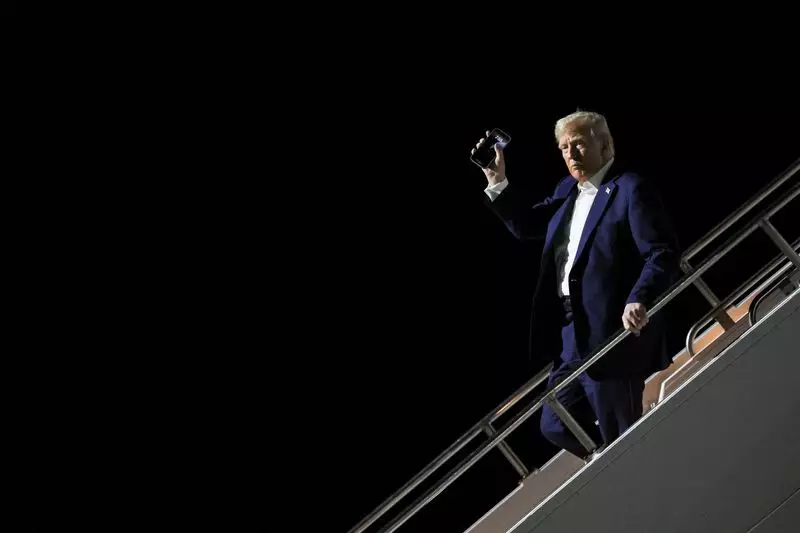With a wave of political warmth emanating from Las Vegas, President Donald Trump marked the end of his initial week back in office with a focused discussion on tax cuts, particularly aimed at the hospitality sector. This visit came as part of his effort to reinforce his earlier promises made during the 2024 campaign, where he specifically targeted challenges faced by service workers in Nevada, a state heavily reliant on the tip-based income of its workforce. His proposals not only aim to garner support but also highlight the critical interplay between economic policy and voter sentiment in a service-oriented economy.
Immediately upon his return to office, Trump initiated a sweeping rollback of initiatives established by the previous administration of Joe Biden. This strategic maneuver appears to align with his long-standing goal of reshaping federal governance while appealing to his base. In a series of visits to disaster-hit areas such as North Carolina and California, Trump showcased a dual agenda: addressing urgent recovery needs while simultaneously hinting at controversial cuts to federal assistance frameworks like FEMA. By juxtaposing disaster recovery with tax policy discussions focused on tips, Trump is recalibrating his approach to governance in a way that intertwines economic relief with political positioning.
In Las Vegas, a city synonymous with the hospitality industry, Trump’s conversation about the cessation of taxation on tips was particularly strategic. The hospitality sector employs a staggering percentage of the local workforce, making this proposal not just an economic incentive but a political necessity. During his speeches, Trump invoked nostalgia for his previous proclamations on tax relief, signaling to voters that he has consistently championed their economic interests. The lines he drew between the pain of rising costs—exacerbated by inflation—and his tax reform efforts were designed to resonate deeply with constituents straddling economic uncertainty.
Michael McDonald, the chairman of the Nevada Republican Party, echoed sentiments of economic relief, emphasizing the pressing nature of tax cuts in a state grappling with high living costs. His enthusiastic reception of Trump’s agenda illustrates a broader acceptance within the local political landscape, driven by a pragmatic recognition of economic realities facing everyday citizens. These remarks underscore how local leaders perceive tax relief as a direct remedy for constituents’ struggles, making the proposal more than just a policy shift; it’s a lifeline for many families in a state burdened by economic pressures.
However, the exciting prospects of the tax reductions Trump advocates come wrapped in fiscal skepticism. The nonpartisan Committee for a Responsible Federal Budget has highlighted that his proposed initiatives may lead to an eye-watering increase in the national debt by approximately $7.5 trillion over the next decade. This grim figure raises substantial questions regarding the long-term fiscal sustainability of his tax agenda. The reality is further complicated as Republican lawmakers express concern about the potential impact of his tax policies, voicing fears that these cuts could generate severe repercussions for the government’s capacity to manage its escalating $36 trillion debt burden.
Trump’s ambitions for tax reform, particularly regarding tips and other forms of income, are steeped in popular support from specific sectors of the economy. Yet the looming shadow of fiscal responsibility presents a significant barrier to translating these proposals into reality. The discussions in Las Vegas not only emphasize Trump’s goal of endearing himself to the electorate through economic promises but also reveal the inherent contradictions and challenges of ambitious policymaking in a politically charged environment. As the post-pandemic recovery continues to unfold, the success of Trump’s agenda will likely depend on his ability to navigate both political aspirations and economic prudence, striking a delicate balance to sustain both his support base and the nation’s fiscal health.

